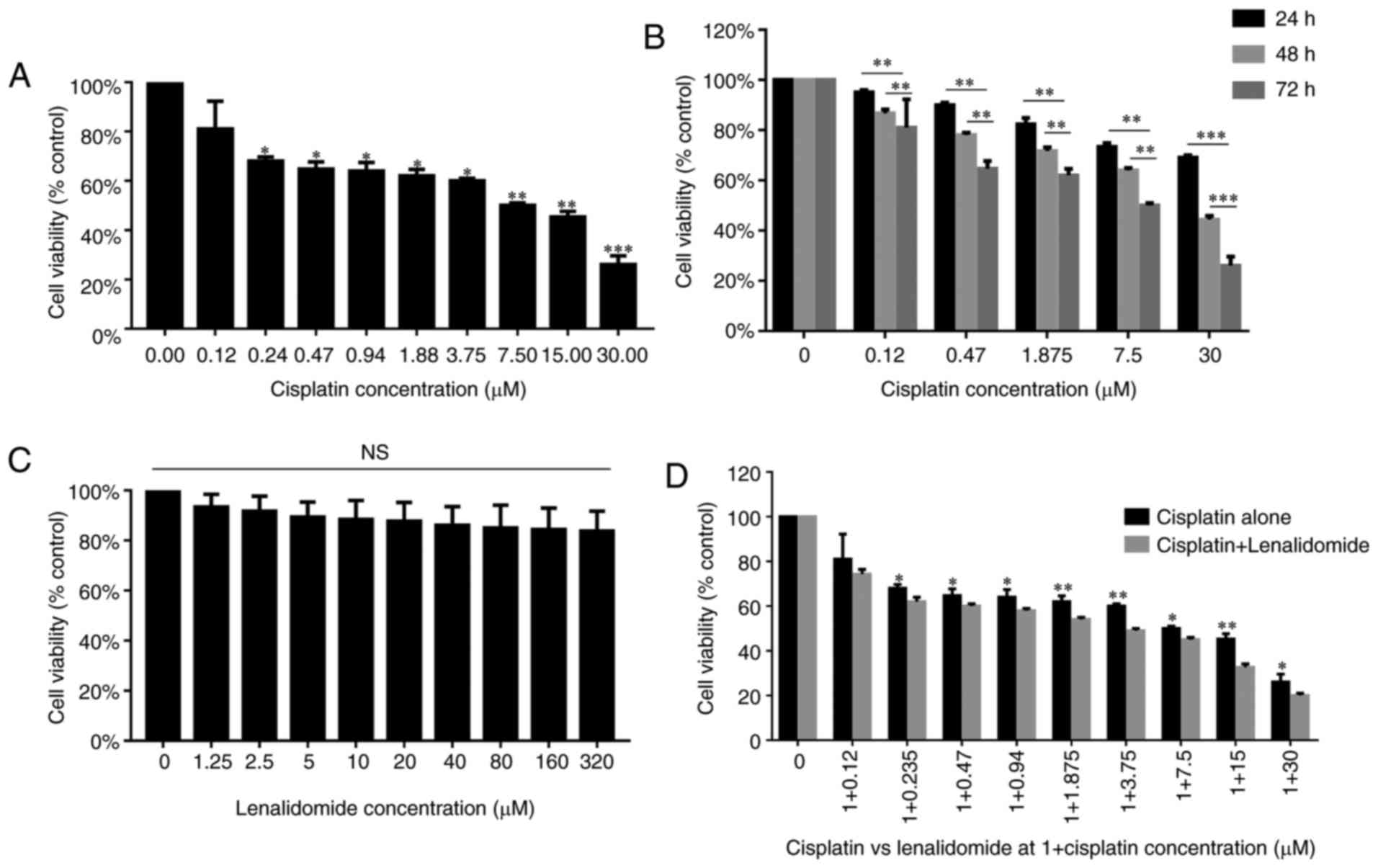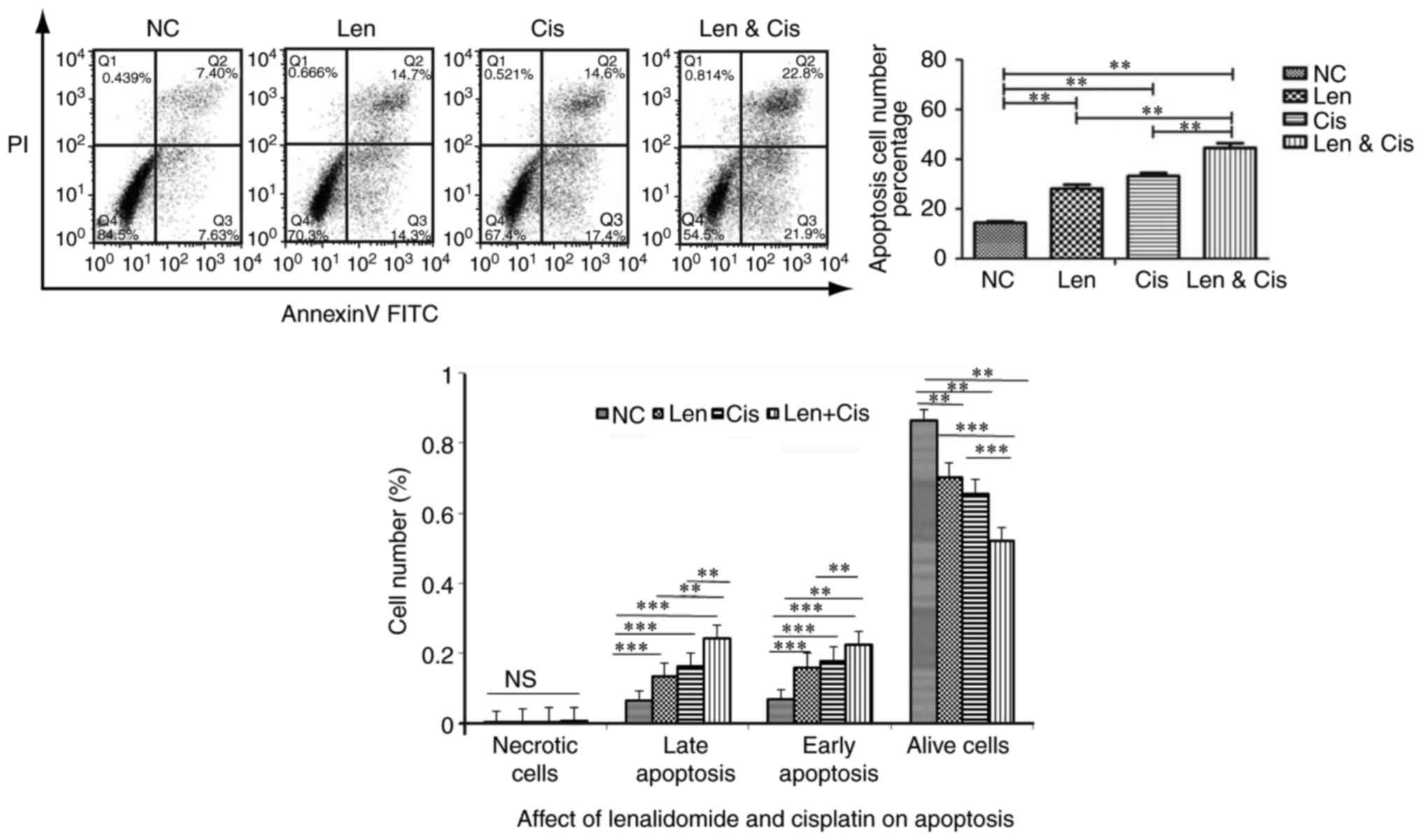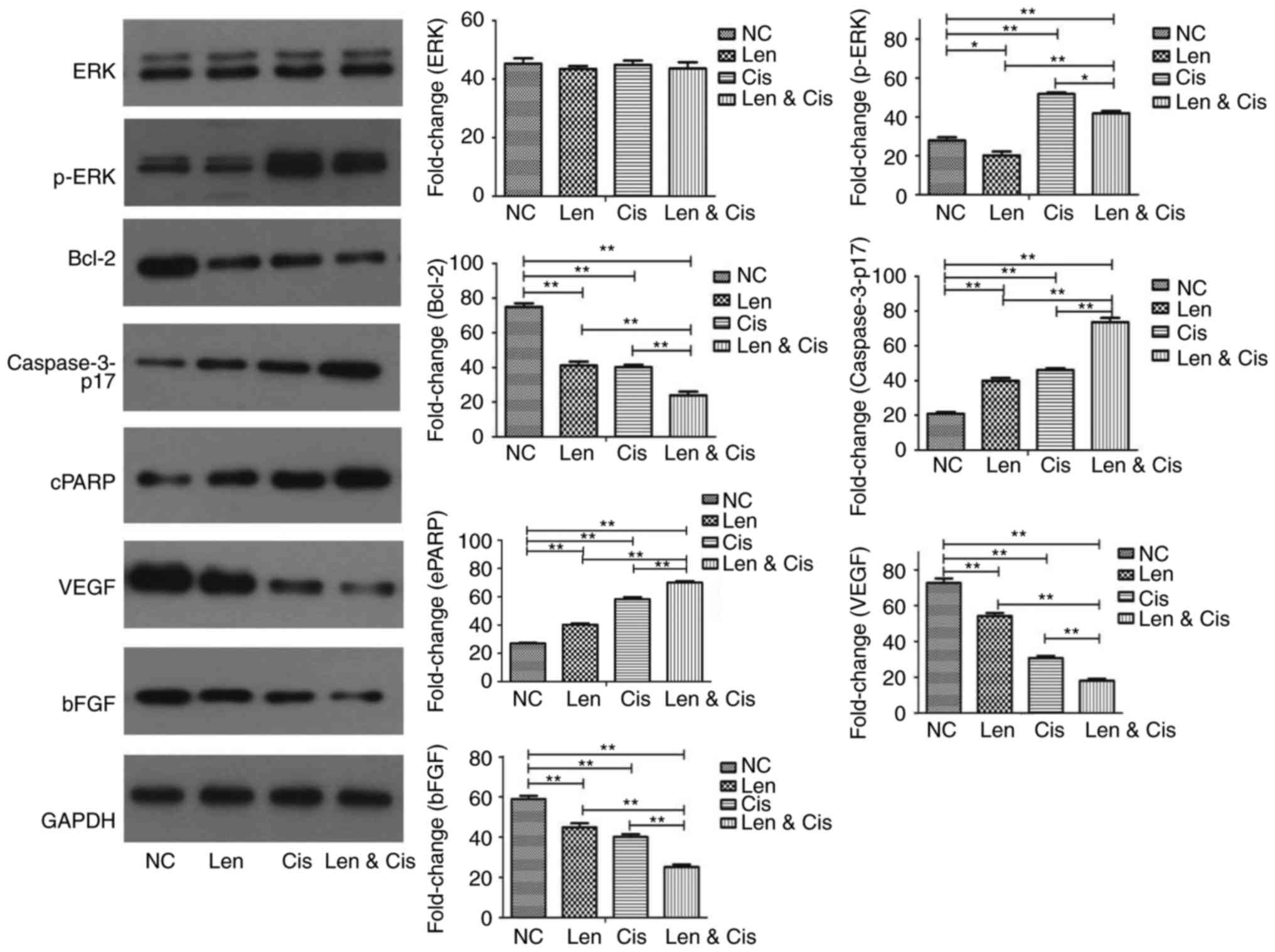|
1
|
Goldhirsch A, Winer EP, Coates AS, Gelber
RD, Piccart-Gebhart M, Thürlimann B and Senn HJ: Panel members:
Personalizing the treatment of women with early breast cancer:
Highlights of the St Gallen international expert consensus on the
primary therapy of early breast cancer 2013. Ann Oncol.
24:2206–2223. 2013. View Article : Google Scholar : PubMed/NCBI
|
|
2
|
Carlson RW, Allred DC, Anderson BO,
Burstein HJ, Carter WB, Edge SB, Erban JK, Farrar WB, Goldstein LJ,
Gradishar WJ, et al: Breast cancer. Clinical practice guidelines in
oncology. J Natl Compr Canc Netw. 7:122–192. 2009. View Article : Google Scholar : PubMed/NCBI
|
|
3
|
Romond EH, Perez EA, Bryant J, Suman VJ,
Geyer CE Jr, Davidson NE, Tan-Chiu E, Martino S, Paik S, Kaufman
PA, et al: Trastuzumab plus adjuvant chemotherapy for operable
HER2-positive breast cancer. N Engl J Med. 353:1673–1684. 2005.
View Article : Google Scholar : PubMed/NCBI
|
|
4
|
Burstein HJ, Temin S, Anderson H, Buchholz
TA, Davidson NE, Gelmon KE, Giordano SH, Hudis CA, Rowden D, Solky
AJ, et al: Adjuvant endocrine therapy for women with hormone
receptor-positive breast cancer: American society of clinical
oncology clinical practice guideline focused update. J Clin Oncol.
32:2255–2269. 2014. View Article : Google Scholar : PubMed/NCBI
|
|
5
|
Yuan N, Meng M, Liu C, Feng L, Hou L, Ning
Q, Xin G, Pei L, Gu S, Li X and Zhao X: Clinical characteristics
and prognostic analysis of triple-negative breast cancer patients.
Mol Clin Oncol. 2:245–251. 2014. View Article : Google Scholar : PubMed/NCBI
|
|
6
|
Anders C and Carey LA: Understanding and
treating triple-negative breast cancer. Oncology (Williston Park).
22:1233–1240, 1243. 2008.PubMed/NCBI
|
|
7
|
McCarthy PL, Owzar K, Hofmeister CC, Hurd
DD, Hassoun H, Richardson PG, Giralt S, Stadtmauer EA, Weisdorf DJ,
Vij R, et al: Lenalidomide after stem-cell transplantation for
multiple myeloma. N Engl J Med. 366:1770–1781. 2012. View Article : Google Scholar : PubMed/NCBI
|
|
8
|
Teo SK: Properties of thalidomide and its
analogues: Implications for anticancer therapy. AAPS J. 7:E14–E19.
2005. View Article : Google Scholar : PubMed/NCBI
|
|
9
|
Wu L, Parton A, Lu L, Adams M, Schafer P
and Bartlett JB: Lenalidomide enhances antibody-dependent cellular
cytotoxicity of solid tumor cells in vitro: Influence of host
immune and tumor markers. Cancer Immunol Immunother. 60:61–73.
2011. View Article : Google Scholar : PubMed/NCBI
|
|
10
|
Qu Z, Jiang C, Wu J and Ding Y:
Lenalidomide induces apoptosis and inhibits angiogenesis via
caspase-3 and VEGF in hepatocellular carcinoma cells. Mol Med Rep.
14:4781–4786. 2016. View Article : Google Scholar : PubMed/NCBI
|
|
11
|
Weber DM, Chen C, Niesvizky R, Wang M,
Belch A, Stadtmauer EA, Siegel D, Borrello I, Rajkumar SV,
Chanan-Khan AA, et al: Lenalidomide plus dexamethasone for relapsed
multiple myeloma in North America. N Engl J Med. 357:2133–2142.
2007. View Article : Google Scholar : PubMed/NCBI
|
|
12
|
Wu L, Liu W, Galustian C, Schafer P,
Dalgleish AG and Bartlett JB: Effect of lenalidomide on the
antiproliferative effect of gemcitabine against pancreatic tumor
cells and on immune-mediated pancreatic cancer cell death. J Clin
Oncol. 27 Suppl 15:e146352009.
|
|
13
|
Said R, Ye Y, Hong DS, Naing A, Falchook
G, Fu S, Wheler JJ, Piha-Paul S and Tsimberidou AM: Phase I
clinical trial of lenalidomide in combination with 5-fluorouracil,
leucovorin, and oxaliplatin in patients with advanced cancer.
Cancer Chemother Pharmacol. 77:575–581. 2016. View Article : Google Scholar : PubMed/NCBI
|
|
14
|
Safran H, Charpentier KP, Kaubisch A,
Mantripragada K, Dubel G, Perez K, Faricy-Anderson K, Miner T, Eng
Y, Victor J, et al: Lenalidomide for second-line treatment of
advanced hepatocellular cancer: A Brown University oncology group
phase II study. Am J Clin Oncol. 38:1–4. 2015. View Article : Google Scholar : PubMed/NCBI
|
|
15
|
Henry JY, Lu L, Adams M, Meyer B, Bartlett
JB, Dalgleish AG and Galustian C: Lenalidomide enhances the
anti-prostate cancer activity of docetaxel in vitro and in vivo.
Prostate. 72:856–867. 2012. View Article : Google Scholar : PubMed/NCBI
|
|
16
|
Brosseau C, Colston K, Dalgleish AG and
Galustian C: The immunomodulatory drug lenalidomide restores a
vitamin D sensitive phenotype to the vitamin D resistant breast
cancer cell line MDA-MB-231 through inhibition of BCL-2: Potential
for breast cancer therapeutics. Apoptosis. 17:164–173. 2012.
View Article : Google Scholar : PubMed/NCBI
|
|
17
|
Chou TC and Talalay P: Quantitative
analysis of dose-effect relationships: The combined effects of
multiple drugs or enzyme inhibitors. Adv Enzyme Regul. 22:27–55.
1984. View Article : Google Scholar : PubMed/NCBI
|
|
18
|
Jovanović B, Mayer IA, Mayer EL, Abramson
VG, Bardia A, Sanders M, Kuba MG, Estrada MV, Beeler JS, Shaver TM,
et al: A randomized phase II neoadjuvant study of cisplatin,
paclitaxel with or without everolimus in patients with stage II/III
triple-negative breast cancer (TNBC): Responses and long-term
outcome correlated with increased frequency of DNA damage response
gene mutations, TNBC subtype, AR status, and Ki67. Clin Cancer Res.
23:4035–4045. 2017. View Article : Google Scholar : PubMed/NCBI
|
|
19
|
Fecteau JF, Corral LG, Ghia EM, Gaidarova
S, Futalan D, Bharati IS, Cathers B, Schwaederlé M, Cui B,
Lopez-Girona A, et al: Lenalidomide inhibits the proliferation of
CLL cells via a cereblon/p21(WAF1/Cip1)-dependent mechanism
independent of functional p53. Blood. 124:1637–1644. 2014.
View Article : Google Scholar : PubMed/NCBI
|
|
20
|
Bridoux F, Chen N, Moreau S, Arnulf B,
Moumas E, Abraham J, Desport E, Jaccard A and Fermand JP:
Pharmacokinetics, safety, and efficacy of lenalidomide plus
dexamethasone in patients with multiple myeloma and renal
impairment. Cancer Chemother Pharmacol. 78:173–182. 2016.
View Article : Google Scholar : PubMed/NCBI
|
|
21
|
Czarnomysy R, Surażyński A, Popławska B,
Rysiak E, Pawłowska N, Czajkowska A, Bielawski K and Bielawska A:
Synergistic action of cisplatin and echistatin in MDA-MB-231 breast
cancer cells. Mol Cell Biochem. 427:13–22. 2017. View Article : Google Scholar : PubMed/NCBI
|
|
22
|
Jin Z, Qing K, Ouyang Y, Liu Z, Wang W, Li
X, Xu Z and Li J: Low dose of lenalidmide and PI3K/mTOR inhibitor
trigger synergistic cytoxicity in activated B cell-like subtype of
diffuse large B cell lymphoma. J Exp Clin Cancer Res. 35:522016.
View Article : Google Scholar : PubMed/NCBI
|
|
23
|
Liu Y, Bi T, Wang G, Dai W, Wu G, Qian L,
Gao Q and Shen G: Lupeol inhibits proliferation and induces
apoptosis of human pancreatic cancer PCNA-1 cells through AKT/ERK
pathways. Naunyn Schmiedebergs Arch Pharmacol. 388:295–304. 2015.
View Article : Google Scholar : PubMed/NCBI
|
|
24
|
Fryer RA, Barlett B, Galustian C and
Dalgleish AG: Mechanisms underlying gemcitabine resistance in
pancreatic cancer and sensitisation by the iMiD™ lenalidomide.
Anticancer Res. 31:3747–3756. 2011.PubMed/NCBI
|
|
25
|
Chen FS, Cui YZ, Luo RC, Wu J and Zhang H:
Coadministration of sorafenib and cisplatin inhibits proliferation
of hepatocellular carcinoma HepG2 cells in vitro. Nan Fang Yi Ke Da
Xue Xue Bao. 28:1684–1687. 2008.(In Chinese). PubMed/NCBI
|
|
26
|
Bold RJ, Termuhlen PM and McConkey DJ:
Apoptosis, cancer and cancer therapy. Surg Oncol. 6:133–142. 1997.
View Article : Google Scholar : PubMed/NCBI
|
|
27
|
Wu J, Cai Y, Li M, Zhang Y, Li H and Tan
Z: Oxymatrine promotes S-phase arrest and inhibits cell
proliferation of human breast cancer cells in vitro through
mitochondria-mediated apoptosis. Biol Pharm Bull. 40:1232–1239.
2017. View Article : Google Scholar : PubMed/NCBI
|
|
28
|
Munugalavadla V, Mariathasan S, Slaga D,
Du C, Berry L, Del Rosario G, Yan Y, Boe M, Sun L, Friedman LS, et
al: The PI3K inhibitor GDC-0941 combines with existing clinical
regimens for superior activity in multiple myeloma. Oncogene.
33:316–325. 2014. View Article : Google Scholar : PubMed/NCBI
|
|
29
|
Yang XW, Ma LM, Zhao XQ and Ruan LH:
Clinical curative efficacy of lenalidomide combined with
chemotherapy for acute leukemia and its impact on VEGF. Zhongguo
Shi Yan Xue Ye Xue Za Zhi. 24:702–706. 2016.(In Chinese).
PubMed/NCBI
|

















